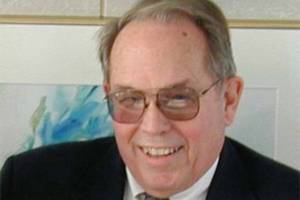Cal Thomas: Flunking civics should not be an option
Published 4:19 am Tuesday, April 21, 2015
“Don’t know much about history” — Sam Cooke
It’s an old joke, but one that is a commentary on our times. A pollster asks: “What do you think about the level of ignorance and apathy in the country?” The person replies: “I don’t know and I don’t care.”
Each week, Jesse Watters of Fox News interviews mostly young people about politics, government, current events and history. He claims their displays of ignorance are not edited. The worst part is that the interviewees don’t seem to care that they know little about their government and country. In a recent episode, interviewees couldn’t name President Obama’s accomplishments or any of the Republican presidential hopefuls.
I recently saw Larry Pressler, the former senator from South Dakota, at O’Hare Airport in Chicago. Pressler now teaches a course on civics at The George McGovern Center for Leadership and Public Service at Dakota Wesleyan University in Mitchell, S.D.
“Why civics at the college level?” I asked. “Aren’t young people supposed to learn about their government in high school, or earlier?”
“They’re not learning it there,” Pressler replied. “It isn’t being taught.”
When I was in high school, we were expected to read and memorize the Declaration of Independence and study the history and importance of the Bill of Rights, as well as understand how a bill becomes law and how the three branches of government are supposed to function.
A May 2011 article by Mark Hansen in the ABA Journal entitled “Flunking Civics: Why America’s Kids Know So Little,” addressed the problem: “Those under the age of 25 are less likely to vote than were their elders or younger people in previous decades, according to a 2003 report by the Silver Spring, Md.-based Campaign for the Civic Mission of School, a coalition of about 40 organizations, including the American Bar Association … students also are less interested in public or political issues than were previous generations, and they exhibit gaps in their knowledge of fundamental democratic principles and processes.”
Partly, I suspect, this is due to the deepening cynicism about politics and politicians, exacerbated by the packaged and insincere comments of too many of our leaders. It may also be caused by the political indifference of parents. But largely, I think, it is the failure of too many schools to teach about our own government and the next generation’s responsibility to preserve it.
Pressler thinks young people must learn about our constitutional republic in order for it to remain strong: “My thinking is turning toward mandating that high school students, vocational students, even college students learn the basic functioning and interactions of federal, state, tribal, county and municipal governments and how much their votes really count in all of these elections.”
At the conclusion of the Constitutional Convention of 1787, Mrs. Powel of Philadelphia reportedly asked Benjamin Franklin, “Well, Doctor, what have we got, a republic or a monarchy?” Franklin responded, “A republic, if you can keep it.”
The current generation — tied to social media and their smartphones with no requirement they serve their country in the military or anywhere else — doesn’t seem interested in “keeping it.” They must be awakened from their indifference because, as Ronald Reagan said: “Freedom is never more than one generation away from extinction. We didn’t pass it to our children in the bloodstream. It must be fought for, protected, and handed on for them to do the same, or one day we will spend our sunset years telling our children and our children’s children what it was once like in the United States where men were free.”
At the end of 2014, The Wall Street Journal reported that more states were requiring civics in order to graduate from high school. As the Journal noted then, this was sorely needed because, “about two-thirds of students tested below proficient on the civics portion of the National Assessment of Educational Progress in both 2006 and 2010.” Citing the Education Commission of the States, WSJ added this sobering stat: “Only 10 states require a social studies test to graduate from high school.”
More should. In fact, all should.
Readers may email Cal Thomas at tcaeditors@tribpub.com.




